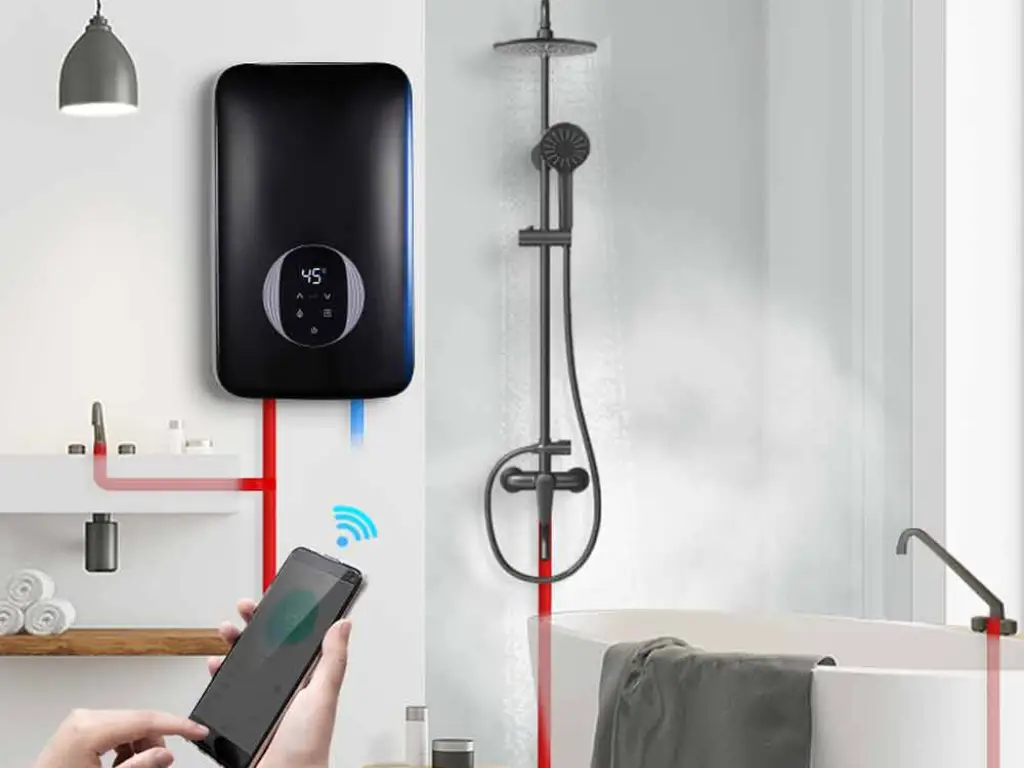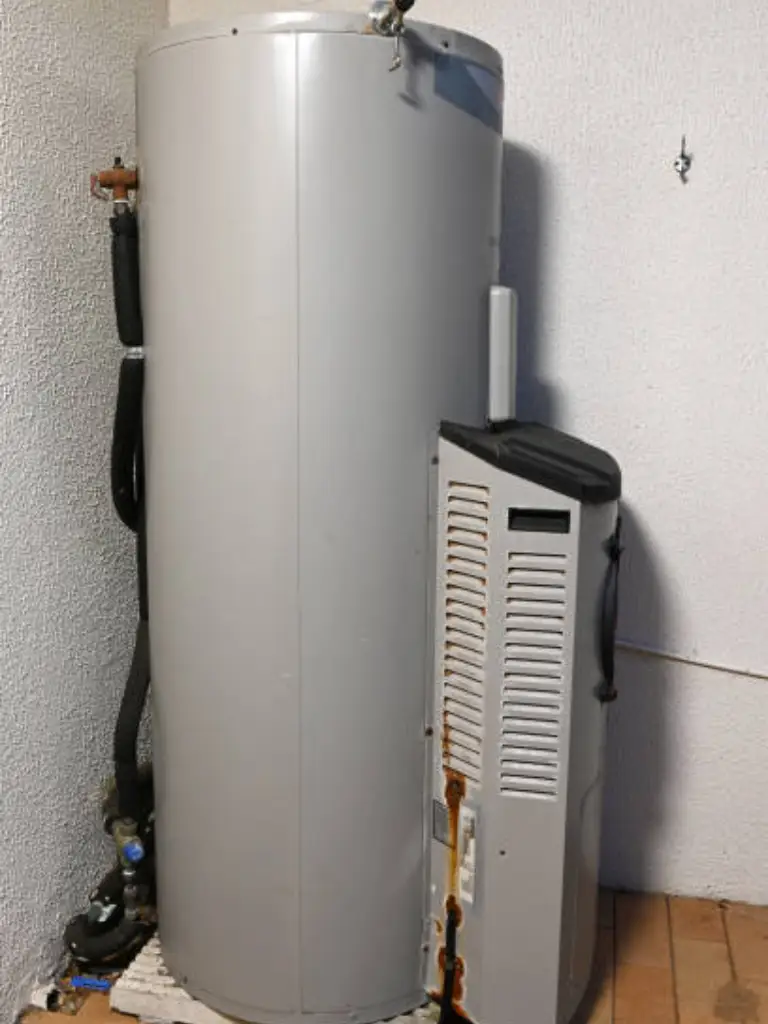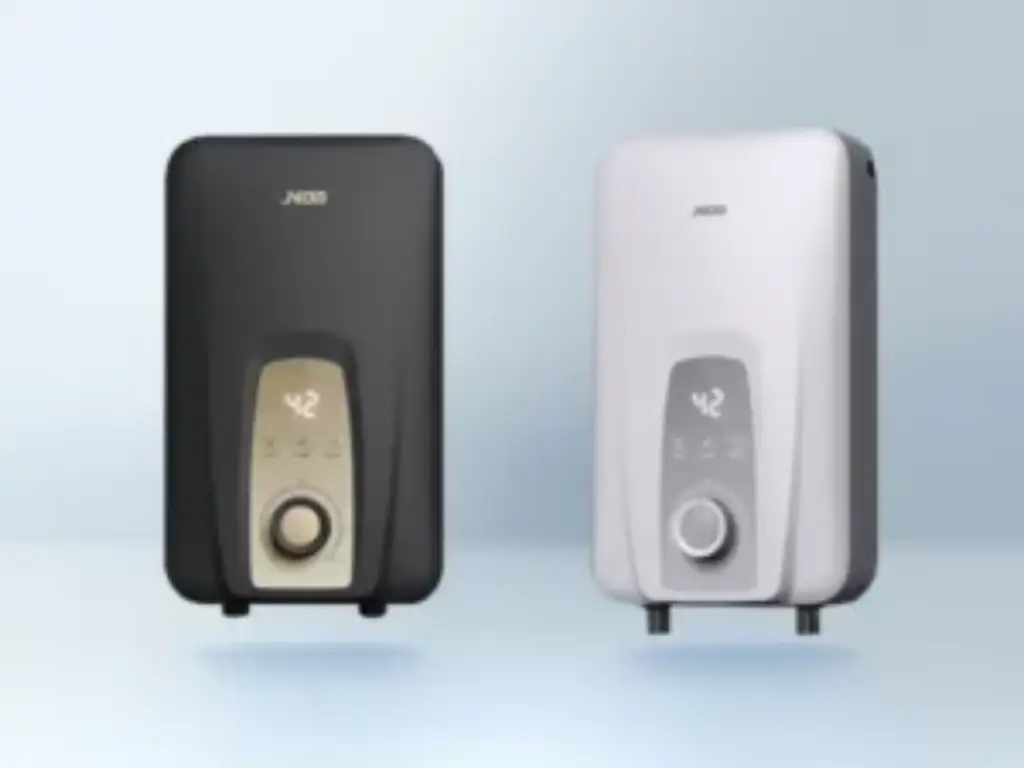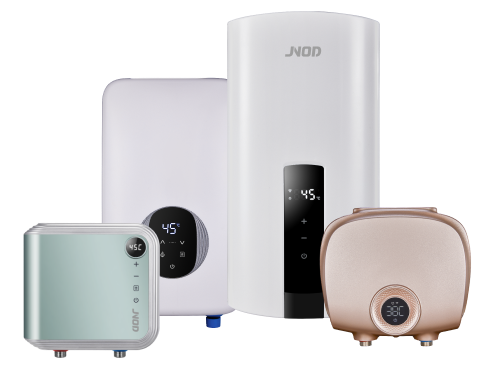Introduction
In the dynamic landscape of residential water heating, discerning the market trends between hybrid and tankless water heaters is crucial. Hybrid heaters, known for their energy efficiency, merge conventional tank storage with a heat pump mechanism. According to the U.S. Department of Energy, they can be up to 3 times more energy-efficient than conventional electric resistance water heaters. Conversely, tankless models, celebrated for their compact size and on-demand heating, reduce energy consumption by 24% to 34% for households using 41 gallons or less of hot water daily, as reported by Energy.gov. The market’s inclination is increasingly towards energy-efficient solutions, with hybrid models gaining traction for their lower operational costs and tankless systems for their space-saving and immediate hot water provision. This shift reflects a growing consumer emphasis on sustainability and cost-effectiveness.
What Are Tankless Water Heaters?

Tankless water heaters, often denominated as on-demand water heaters, epitomize an innovative engineering feat designed to furnish hot water with exacting temporal precision. Diverging markedly from traditional storage-tank water heaters, these tankless units abandon the orthodox modality of maintaining a pre-heated water reserve. Instead, they adeptly deliver hot water instantaneously upon request, using only the amount needed at any given time. This novel operational paradigm substantially mitigates the thermal energy dissipation that is invariably linked with sustaining a voluminous reservoir of heated water at a constant temperature. As a result, tankless water heaters, a type of water heater, emerge as a conspicuously more energy-efficient alternative, making them ideal for smaller homes. Available in both electric and natural gas models, these heaters offer a flexible and efficient solution, seamlessly integrating into a diverse array of domestic infrastructures and thereby catering to a wide spectrum of household hot water needs.
How Tankless Water Heaters Work?
Tankless water heaters, frequently referred to as instantaneous or on-demand water heaters, operate based on a sophisticated and streamlined principle. Upon the activation of a hot water faucet, cold water is directed through a conduit into the heater apparatus. In the context of a gas-fueled tankless heater, a high-efficiency gas burner expeditiously elevates the water temperature, thereby delivering instantaneous hot water. This mechanism is marked by its efficiency and continuity, guaranteeing an unbroken supply of hot water, particularly crucial during activities such as showering or taking a cold shower.
Conversely, electric tankless heaters employ an electrical heating element to raise the water temperature. These units are typically more compact and may offer simplified installation procedures. However, their heating capability is occasionally constrained by the electrical infrastructure of the residence. In both gas and electric variants, the elimination of a storage tank translates into a notable reduction in energy expenditure, as it obviates the need to maintain a substantial volume of water at elevated temperatures when idle. Consequently, these heaters present a more energy-efficient and spatially economical alternative to conventional tank-based water heaters, aligning with contemporary environmental and space-saving considerations.
Pros and Cons of Choosing Tankless Water Heater
Pros:
- Optimized Thermal Continuity: Tankless water heaters are distinguished by their capacity to provide an uninterrupted and consistent supply of hot water, a feature particularly advantageous in residences with substantial occupancy or in situations where the demand for hot water is considerably high. This system guarantees that the thermal requirements of each occupant are met with exceptional regularity, thereby obviating the disruptions associated with hot water scarcity.
- Spatially Economical Configuration: The streamlined construction of these heating units significantly enhances their integration into limited spatial environments, thereby substantially improving the functional optimization of residential quarters. This compact design not only augments the practicality and efficiency of living areas but also contributes to an orderly and visually appealing domestic ambiance.
- Superior Energy Efficiency: While these units may not reach the pinnacle of energy conservation set by advanced hybrid models, they demonstrate a marked enhancement in energy efficiency compared to conventional storage tank heaters. This improved efficiency not only results in a decrease in energy costs but also lessens the ecological footprint, representing a progressive stride towards environmentally sustainable habitation.
Cons:
- Restricted Flow Capacity: The performance of these systems may diminish when tasked with supplying hot water to multiple outlets simultaneously, a limitation particularly noticeable in households with extensive concurrent hot water needs.
- Elevated Initial Expenditure: The upfront cost of tankless water heaters typically exceeds that of their conventional counterparts. Nonetheless, this initial investment may be balanced over time by the lower operational expenses, potentially rendering it a judicious long-term financial decision.
- Intricate and Expensive Installation: The installation of gas-powered tankless water heaters, in particular, demands a high degree of complexity and financial outlay. This process often necessitates the involvement of skilled professionals, thereby escalating the overall cost. Moreover, installation may require significant alterations to existing plumbing and electrical infrastructures, further amplifying the complexity and expense involved.
What Are Hybrid Water Heaters?

Hybrid water heaters, also referred to as heat pump water heaters, epitomize the amalgamation of advanced technology and heightened energy efficiency. These systems integrate the conventional principles of electric water heating with the innovative approach of heat pump technology. Distinct from the traditional water heaters that directly produce heat through electrical elements, hybrid models employ electricity to transfer heat, a process inherently more energy-efficient and resulting in lower utility bills for homeowners due to energy savings. These sophisticated heating units efficiently harness ambient air heat, subsequently transferring it to the water. Optimally functional in environments where the ambient air temperature oscillates between 40 and 90 degrees Fahrenheit, these heaters are available in a spectrum of sizes, tailored to accommodate varying residential requirements. They stand as an exemplary choice for environmentally conscious consumers, keen on diminishing their carbon footprint whilst ensuring a consistent supply of hot water.
How Hybrid Water Heaters Work
Delving into the operational dynamics of hybrid water heaters illuminates the rationale behind their exceptional efficiency. At their core, these heaters function by aspirating the surrounding air via an integrated fan mechanism. The thermal energy contained within this air is then absorbed by a refrigerant present in the heat pump’s evaporator coil. Upon absorption, the refrigerant, now thermally energized, circulates through a compressor. This process escalates its temperature substantially.
Subsequently, the refrigerant, now in an elevated thermal state, navigates through a sophisticated heat exchanger apparatus. Within this mechanism, it undergoes a systematic relinquishment of its accumulated thermal energy to the water ensconced in the adjacent storage tank. This particular methodology of thermal energy transference stands out for its remarkable energy efficiency, especially when contrasted with the more rudimentary direct heat generation methodology employed by traditional electric water heaters. Furthermore, the ingenuity of the hybrid water heater is exemplified in its capacity to seamlessly oscillate between the heat pump mode and the conventional electric mode. This dual-functionality endows the appliance with an unparalleled versatility. It adeptly responds to fluctuating demands for hot water and ambient temperature variations, thereby solidifying its status as a paragon of technological advancement and a versatile instrument in the realm of domestic appliances.
Pros and Cons of Hybrid Water Heating
Pros:
- Optimized Energy Utilization: Hybrid water heaters represent the zenith of energy efficiency in the domain of water heating technologies. These systems operate at a significantly diminished energy consumption rate when juxtaposed with their conventional storage tank counterparts, thereby demonstrating a profound enhancement in energy management. This heightened efficiency not only culminates in a remarkable reduction in energy costs but also results in substantial fiscal savings over an extended period.
- Environmental Impact Mitigation: Characterized by their significantly lowered carbon emissions, these heating systems are a testament to environmentally conscientious engineering. This commitment, extending beyond mere responsible design, materially contributes to global sustainability initiatives, thus harmonizing with overarching environmental conservation objectives.
- Economic Advantages and Governmental Encouragements: Numerous municipal and regional authorities have implemented financial incentives designed to catalyze the adoption of energy-efficient technologies, including hybrid water heaters. These incentives, often manifesting as tax credits and rebates, provide an economic stimulus for consumers to gravitate towards environmentally benign and sustainable domestic solutions.
Cons:
- Elevated Initial Capital Outlay: The procurement cost associated with a hybrid water heater notably surpasses that of conventional models, presenting an increased financial burden. This amplified initial investment may serve as a significant deterrent for consumers deliberating the transition to more energy-conservative domestic appliances.
- Spatial Considerations: Hybrid water heaters necessitate a significant allocation of space to attain optimal operational proficiency. Their efficacy is fundamentally linked to their capacity for heat extraction from the ambient atmosphere, thereby requiring a considerably expansive area for installation to ensure maximum functionality.
- Climatic Dependencies: The functional efficiency of these sophisticated heating apparatuses displays a notable reliance on the prevailing ambient thermal conditions. In environments characterized by severe cold, the efficacy of their energy-conserving mechanisms may be markedly diminished, thereby potentially undermining the core advantages inherent in their cutting-edge technological design.
Key Differences Between Hybrid and Tankless Heaters
When evaluating the choice between a hybrid water heater and a tankless water heater, it is beneficial to conduct a comprehensive comparison. To facilitate this, we will provide a detailed, multidimensional comparison table:
| Feature | Hybrid Water Heater | Tankless Water Heater |
| Energy Efficiency | Extremely high; uses heat pump technology | More efficient than traditional but less than hybrid |
| Operation Method | Absorbs heat from surrounding air | Heats water directly without storage |
| Initial Cost | Generally higher than tankless and traditional | Higher than traditional but can vary |
| Running Cost | Lower due to high energy efficiency | Lower than traditional, but higher than hybrid |
| Space Requirements | Requires more space for air circulation | Compact, requires less space |
| Installation Complexity | Moderate; similar to traditional water heaters | Can be complex, especially for gas models |
| Climate Suitability | Best in moderate climates | Works well in most climates |
| Hot Water Supply | Consistent, but can be slower in high-demand mode | Instantaneous but limited by flow rate |
| Lifespan | Around 13-15 years | Often more than 20 years |
| Maintenance | Regular maintenance needed, similar to traditional | Less frequent maintenance than traditional |
| Environmental Impact | Lower carbon footprint | Better than traditional, but not as good as hybrid |
| Tax Incentives | Often available due to energy efficiency | Sometimes available, depending on the model |
Which is Right for You?
The strategic integration of a hybrid or electric tankless new water heater into an existing product portfolio necessitates an exhaustive and meticulous analysis of several pivotal factors. This comprehensive evaluation must incorporate an in-depth market demand assessment, a nuanced cost-benefit analysis, a thorough examination of installation feasibility and simplicity, continuous maintenance exigencies, the adaptability of the system under a variety of climatic conditions, and an extensive financial audit encompassing both the initial capital outlay and the long-term operational expenditures. It is imperative that these elements are rigorously scrutinized to ascertain that the integration coheres with prevailing market expectations and the strategic directives of the product line. Moreover, it is crucial to accentuate the superior characteristics of the electric tankless water heater.
The electric tankless water heater, imbued with cutting-edge technology, presents an exceptional amalgamation of operational efficiency and environmental stewardship. It is distinguished by its capacity to furnish instantaneous hot water access while markedly diminishing energy consumption, which resonates with contemporary market trends that emphasize ecological responsibility. Its compact architecture not only facilitates a streamlined installation process but also mitigates spatial requisites, a feature particularly advantageous in contemporary urban dwellings.
Additionally, the operational preeminence of electric tankless water heaters is further underscored by their minimal maintenance demands and augmented durability compared to traditional models. This characteristic, coupled with the burgeoning trend towards electrification and the embracement of renewable energy sources, positions these heaters as a visionary and strategic choice for forward-thinking living environments. If you have decided which water heater to purchase, here is a list of top water heater manufacturers for your reference. Click here to discover more.
Conclusion
The deliberation over choosing between hybrid and electric tankless water heaters is deeply intertwined with the current market dynamics and the broader strategic imperatives of the enterprise. Hybrid systems, with their enhanced energy efficiency, hold a particular appeal to the ecologically conscious demographic, reflecting an alignment with modern sustainable methodologies. On the other hand, electric tankless water heaters are impeccably suited for areas where space is at a premium, offering the advantage of immediate water heating. It is imperative, therefore, that the selection of a water heating system is not only congruent with prevailing market trends but also resonates with the inclinations of the target consumers.
Get a Free Quote With JNOD

At JNOD, we have established ourselves as a vanguard in the water heating sector, presenting an array of products that are synonymous with both efficiency and dependability. We cordially invite prospective clients to avail themselves of a complimentary, detailed quotation, further enriched with a tailored advisory session.
